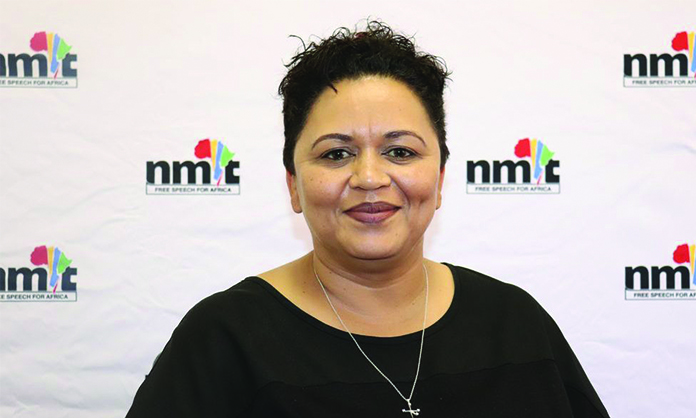Editorial interference and a challenging economic landscape has seen Namibia lose its position as accommodating Africa’s freest press.
The country has dropped 12 points on the 2024 Press Freedom Index released by Reporters Without Borders (RSF) on Friday.
This development has been described by political and industry experts as disappointing.
The country’s global ranking fell from number 22 last year to number 34 this year.
Mauritania now claims the title of having Africa’s freest press, surpassing Namibia with a ranking of 33.
The 2024 Press Freedom Index report recognises that while reporters in Namibia are free to work without interference from the authorities, the government still has a grip on the dissemination of information through state media.
“The government nonetheless maintains strict control over the appointment of the boards of directors of certain publications, and consequently over their content,” the report says.
A troubling incident was the suspension of the managing editor of a state-owned Namibian daily, which has highlighted the challenges reporters face when expressing dissent within state-controlled media.
The report further says media outlets are sometimes attacked by ministers, or even by the president, who accuse the outlets of being too negative in their reporting.
This could lead to personal intimidation, the report states.
It says Namibia’s economic environment is more favourable to state-owned media.
“Advertising revenue is often channelled to pro-government media, a policy that undermines independent reporting. The print media are facing increasing financial difficulties and many have switched to a digital format,” the report says.
‘VITAL ROLE IN DEMOCRACY’
Political analyst Henning Melber says he is disappointed in the ranking, adding that the media plays a vital role in democracy.
“The downgrading of Namibia by 12 points is a disappointing setback and a harsh and painful reminder that media freedom is a public good which needs to be jealously guarded and protected – also by the government and state officials – since it adds to the international reputation of a plural democracy,” he says.
While acknowledging Namibia’s progress on an access to information law, Reporters Without Borders notes shortcomings in protecting journalistic sources, which is important for a robust, free press.
“This has been a worrisome intervention and underlines the point that journalists in state-controlled media risk punishment for articulating criticism or concerns,” Melber says.
VERBAL ASSAULTS MENTIONED
Verbal assaults on the media by government officials were observed in the report, although direct intimidation was not cited.
“Given the election year, it is crucial to protect the media and their right to raise controversial issues without any interference turning into intimidation or sanctions,” Melber says.
He says media freedom is a public good all political parties should promote, respect and celebrate.
“The declared aim of all political parties should be to regain the first rank as Africa’s freest media by recognising the tremendous service independent media and media practitioners render a country’s democracy,” Melber says.
‘SLOW DECLINE’
Zoe Titus, the director of the Namibia Media Trust (NMT), says there has been a slow decline in Namibia’s global ranking over the past three years, with global scores declining from 81,84 in 2022, 80,91 in 2023, and now 74,16 in 2024.
“My most immediate conclusion is that this decline relates to concerns about editorial interference and the perceived victimisation of New Era managing editor Johnathan Beukes, an issue that received substantial coverage locally and internationally,” she says.
Titus says despite favourable developments regarding Namibia’s access to information law and the process to operationalise it, the country’s legal framework still has glaring deficiencies.
She says the lack of a data protection law and mounting concerns about surveillance, compounded by insufficient protection of citizens’ private data are issues that would affect Namibia’s ranking negatively.
In addition, the slow pace of operationalising the Whistleblower Protection Act would also be considered in this global assessment of Namibia.
“Namibian civil society and the media have consistently appealed for greater transparency on oil and gas discoveries in the country, particularly as a lack of transparency would have a detrimental impact on politics, press freedom and the broader society,” Titus says.
NMT on Friday called on the government to confirm its membership of the Extractive Industries Transparency Initiative (Eiti).
‘WORRYING TREND’
Meanwhile, Anne Bocandé, the editorial director of RSF, says the decline in the political indicator is a worrying trend, as more than half the world’s population goes to the polls in 2024.
“States and other political forces are playing a decreasing role in protecting press freedom. This disempowerment sometimes goes hand in hand with more hostile actions that undermine the role of journalists, or even instrumentalise the media through campaigns of harassment or disinformation,” she says.
Responding to Namibia’s lower ranking on press freedom, Audrin Mathe, the executive director of information and communication technology, says there is no link between the polls and media freedom.
“When other countries go up, it is not a reflection of a bad performance on others. We should do what we have been doing all along, which is to respect media freedom and create an enabling environment,” he says.
On the sidelines of attending a World Press Freedom Day event in Chile on Friday, information minister Emma Theofelus said: “We see this as an opportunity to show . . . that there is a different narrative where press freedom is concerned, underlined by the rule of law and entwined with the governance architecture of our country”.
Stay informed with The Namibian – your source for credible journalism. Get in-depth reporting and opinions for
only N$85 a month. Invest in journalism, invest in democracy –
Subscribe Now!






